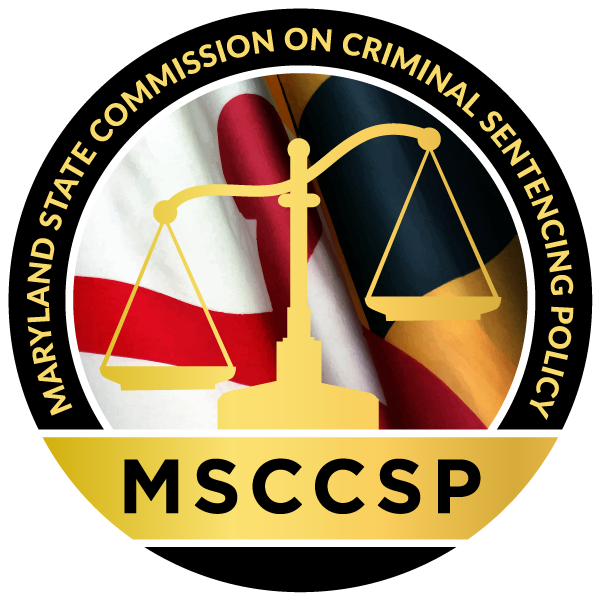Commission By-Laws
Authorization
The Maryland Annotated Code, Criminal Procedure Article, Section 6-206(c)(1) authorized the State Commission on Criminal Sentencing Policy to establish rules governing administration and proceedings of the Commission. These by-laws supplement applicable law and, where inconsistent with Maryland law, Maryland law shall take precedence.
Membership
Section 6-204 sets composition of the State Commission on Criminal Sentencing Policy. Each Commissioner should attend and participate in all regularly scheduled meetings. Commissioners unable to attend a regularly scheduled meeting should notify the Commission Chair or staff at least three (3) days prior to the meeting. If non-attendance by a Commissioner is frequent, the Commission by majority vote may ask that Commissioner’s appointing authority to request the Commissioner’s resignation and to appoint a new Commissioner to serve the remainder of the Commissioner’s term. In cases of Commissioner resignations, the Commissioner resigning should notify the Commission Chair at the time of the resignation. On receipt of the resignation, the Commission Chair will contact the appointing authority to determine the Commissioner’s replacement.
Any Commissioner who has a direct or indirect personal interest in a contract or application before the Commission will withdraw him/herself from voting on that matter. The Commissioner may, however, participate in discussion and answer questions from other Commissioners.
Subcommittees
Section 6-206(a)(1) authorized the Commission to form subcommittees as necessary to perform its legislated functions. The subcommittees may be permanent or temporary. Their membership will be selected by the Commission Chair after solicitation of preferred placement of the Commissioners. The Commission Chair will also appoint subcommittee chairs and, if necessary, vice-chairs. The subcommittees will make and explain recommendations for Commission action. All subcommittee recommendations should incorporate input and feedback from relevant practitioners and related groups involved in sentencing policy, whenever practical.
Meetings
Section 6-205(b)(1) authorized quarterly meetings. The Commission may choose to have more and will set the date, time, and place for each meeting at the conclusion of the preceding meeting.
The Commission Chair, selected by the Governor, will preside over each meeting. In his/her absence, the Chair may appoint a Vice-Chair to preside.
A majority of the Commission present (10 or more) will constitute a quorum for Commission action. Commissioners may send delegates to act as proxies in their absence, but only delegates specifically designated in Section 6-204 (a)(2, 5, 7, 11) may officially vote on Commission actions.
Meetings will be conducted under modified rules of order, subject to determination by the Chair. However, upon a majority vote of the Commission, Commission actions may be formally governed by Robert’s Rules of Order, and questions will be determined by a parliamentarian chosen by the Chair.
Minutes of each meeting will be kept and, after approval by the Commission, posted on the Commission’s website. Public notification of Commission meetings will be done according to state law, and a list of meeting attendees will be kept. Public testimony may be presented at the Commission’s annual public meeting or at general meetings, pending prior notification of intent to Commission staff at least three (3) days prior to the meeting and pending approval of the Commission chair.
Commission Decisions
A majority of Commissioners or their designees present and voting will be required for approval of Commission actions, and each Commissioner shall be entitled to one vote. The Commission may tentatively but not officially approve actions pending dissemination and reporting of the preliminary vote and receipt of feedback from relevant practitioners and related parties.
Amendments
Proposed changes to the by-laws may be presented at any regular Commission meeting and must be approved by majority vote of the Commission at a subsequent meeting.




